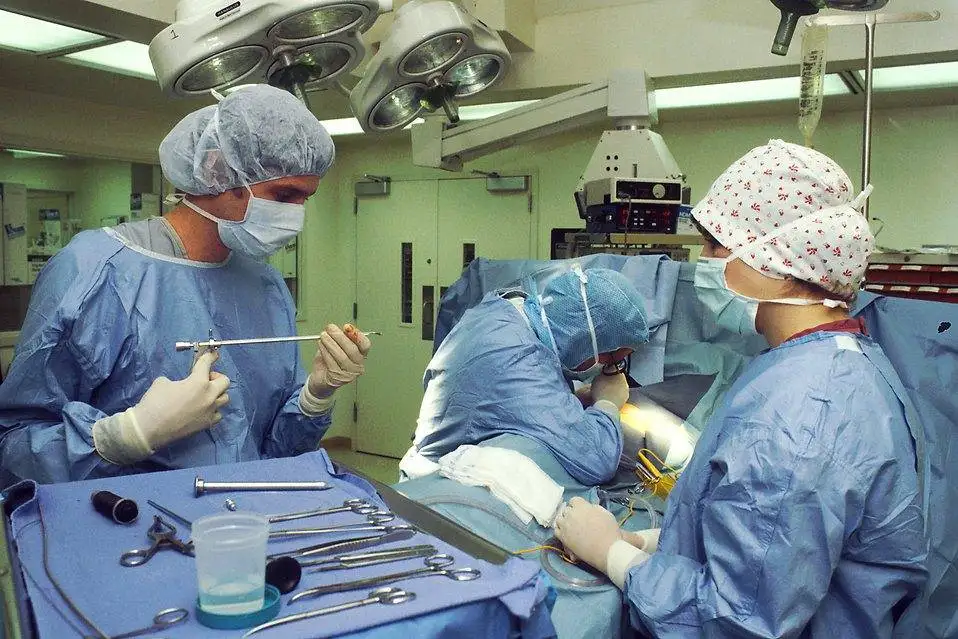Welcoming a newborn into the world is an exciting and sometimes overwhelming experience. One essential aspect of caring for your baby is ensuring they receive regular check-ups with a pediatrician.
Pediatrician visits are vital for monitoring your baby’s growth, development, and overall health. This blog post will explore the importance of regular pediatrician visits, what to expect during these appointments, and how they contribute to your newborn’s health.
The Importance of Regular Pediatrician Visits
1. Monitoring Growth and Development
During pediatrician visits, the doctor will measure your baby’s weight, length, and head circumference. These measurements are compared to standard growth charts to ensure your baby is growing at a healthy rate. Early detection of growth issues can lead to timely interventions, preventing potential long-term problems.
2. Vaccinations and Immunizations
Vaccinations are a crucial part of your baby’s healthcare routine. They protect your child from serious diseases, like measles, mumps, and whooping cough.
During regular pediatrician visits, the doctor will administer vaccines according to the recommended schedule. This protects your baby and contributes to community health by preventing the spread of contagious diseases.
Vaccination schedules are carefully designed to maximize your baby’s immunity during the periods when they are most vulnerable. For example, the Hepatitis B vaccine is often given shortly after birth, while other vaccines are spaced out over the first year and beyond.
Missing these vaccinations leaves your baby at risk of contracting preventable diseases, which sometimes lead to severe health complications or even death.
3. Early Detection of Health Issues
Regular pediatrician visits allow the doctor to identify and address issues before they become severe. Early detection and intervention are key to effective treatment and better outcomes, whether it’s a developmental delay, a nutritional deficiency, or a congenital condition
For instance, conditions like congenital heart defects or hip dysplasia may not be immediately apparent but can be detected through routine screenings. Early intervention significantly improves the prognosis for these conditions.
Similarly, regular pediatrician visits allow monitoring to help identify sensory issues such as hearing or vision problems, allowing early interventions to support your baby’s development and learning.
4. Guidance on Nutrition and Feeding
Newborns have specific nutritional needs that change as they grow. During pediatrician visits, the doctor provides valuable guidance on breastfeeding, formula feeding, and introducing solid foods. They also help address any feeding challenges, ensuring your baby gets the nutrients they need for healthy development.
Breastfeeding is often recommended as the best source of nutrition for newborns, but it comes with challenges. Latching issues, concerns about milk supply, and ensuring your baby is getting enough to eat are common concerns that can be addressed during pediatrician visits.
Pediatricians also offer advice on the best types of formula for mothers who choose formula feeding. This also includes safety, preparation, and storage of formula.
As your baby grows, your pediatrician guides you through the introduction of solid foods, ensuring that this transition is smooth and supports your baby’s nutritional needs. They help you identify signs that your baby is ready for solids, such as sitting up with support and showing interest in food.
5. Building a Strong Doctor-Parent Relationship
Establishing a relationship with your baby’s pediatrician early on is incredibly beneficial. Regular pediatrician visits allow your doctor to become familiar with your baby’s health history and unique needs. It also provides a trusted resource for advice and support as your child grows.
What to Expect During Pediatrician Visits
The Newborn Well-Check Schedule
The American Academy of Pediatrics (AAP) recommends a series of well-check visits during your baby’s first year. These typically occur at:
- 3-5 days old
- 1 month old
- 2 months old
- 4 months old
- 6 months old
- 9 months old
- 12 months old
Each visit has specific goals and focuses on your baby’s health and development.
Physical Examination
Regular pediatrician visits involve checking your baby’s heart, lungs, abdomen, eyes, ears, nose, and throat. They will also assess your baby’s muscle tone, reflexes, and overall physical condition. These examinations help ensure that your baby is healthy and developing normally.
The physical examination also includes checking your baby’s skin for rashes, birthmarks, or other abnormalities. The pediatrician will gently palpate the abdomen to check for signs of hernias or other issues.
Reflexes such as the Moro reflex (startle response) and the rooting reflex (helps the baby find the breast or bottle) are tested to ensure the nervous system is developing properly.
Developmental Milestones
Your pediatrician will monitor your baby’s progress in reaching developmental milestones. These milestones include physical skills like rolling over, sitting up, and crawling, as well as social and cognitive skills like smiling, babbling, and recognizing familiar faces. Tracking milestones helps identify any delays that need further evaluation.
For example, by around two months, most babies smile socially. If your baby isn’t showing signs of this milestone, it might prompt further evaluation to ensure there are no underlying issues.
Similarly, the ability to follow objects with their eyes or respond to sounds by turning their head are important milestones that indicate healthy sensory and cognitive development. All these are properly addressed during regular pediatrician visits.
Vaccination Schedule and Benefits
Your pediatrician will follow a recommended vaccination schedule to protect your baby from various diseases. These vaccines are administered at specific intervals to ensure maximum effectiveness. During the visits, the pediatrician will explain the benefits of each vaccine and address any concerns you may have about side effects or reactions.
The Role of Screening Tests
Screening tests are an essential part of pediatric care, helping to detect conditions that aren’t visible during a physical examination. For newborns, this includes blood tests to screen for metabolic and genetic disorders, and hearing tests to ensure that your baby’s hearing is normal. As your baby grows, other screenings are recommended.
Vision and developmental screenings check for autism or other developmental disorders. These tests are crucial for identifying issues early and providing timely interventions. These can be very well taken care of during regular pediatrician visits.
Creating a Comprehensive Medical History
Regular pediatrician visits build your child’s medical record. A comprehensive medical history enables informed decisions about your child’s care. This includes growth patterns, vaccination records, and other health issues. A detailed medical record is invaluable for ongoing care and future healthcare needs.
The medical history identifies trends and patterns that indicate underlying health issues and ensures that future healthcare providers have access to critical information about your child’s health history.
Growth and Nutrition Guidance
Growth and nutrition are critical aspects of your baby’s development. During pediatrician visits, your doctor will guide feeding practices, whether you are breastfeeding or formula feeding. As your baby grows, the doctor will advise you on introducing solid foods and ensuring a balanced diet that supports healthy growth.
Sleep Patterns and Safe Sleep Practices
Sleep is vital for your baby’s growth and development. During check-ups, your pediatrician will discuss your baby’s sleep patterns and provide tips for establishing healthy sleep habits. They will also emphasize the importance of safe sleep practices to reduce the risk of Sudden Infant Death Syndrome (SIDS).
Behavioral and Social Development
Your doctor will observe your baby’s interactions, responses, and emotional development. They will guide you in fostering a positive and nurturing environment that supports healthy social and emotional growth.
Addressing Parental Concerns
Pediatrician visits also enable parents to discuss their concerns about their baby’s health or behavior. Your pediatrician provides expert advice and reassurance, whether it’s sleep patterns, feeding issues, or general wellness questions.
New parents usually have many questions and concerns, from the color and consistency of their baby’s bowel movements to how often their baby should eat and sleep. Pediatricians provide guidance and support, helping parents feel more confident in their caregiving roles.
This open communication helps build a strong partnership between parents and the healthcare provider. They also offer resources and recommendations for further reading or support groups.
How Pediatrician Visits Contribute to Newborn Well-Being
1. Building a Medical History
Regular pediatrician visits help establish a comprehensive medical history for your baby. This history includes growth patterns, vaccination records, and other health issues. A detailed medical record is invaluable for ongoing care and future healthcare needs.
A comprehensive medical history is important if your child needs to see a specialist or if there are emergencies. It provides a complete picture of your child’s health for making accurate diagnoses and developing effective treatment plans.
2. Preventive Care
Preventive care is a cornerstone of pediatric healthcare. Regular check-ups allow for timely vaccinations, screenings, and health education. This proactive approach helps prevent illnesses and promotes healthy habits, setting the stage for lifelong wellness.
Preventive care goes beyond vaccinations and screenings. Pediatricians also guide on nutrition, physical activity, and safety, helping parents create a healthy environment for their children. This includes advice on car seat safety, safe sleep practices, and how to childproof your home to prevent accidents.
3. Establishing a Healthcare Routine
This routine encourages parents to prioritize their child’s health and well-being. It also familiarizes the child with the healthcare environment, making future visits less stressful and more productive.
Children accustomed to regular check-ups are often less anxious about visiting the doctor. This familiarity makes future healthcare visits, whether for routine care or illness, much easier for the child and the parents. It also helps children understand the importance of their health from a young age.
4. Parental Education and Support
Pediatricians offer guidance on child-rearing, from safe sleep practices to developmental activities. This support empowers parents to make informed decisions about their baby’s care, fostering a nurturing and healthy environment.
Parental education is an ongoing process. Pediatricians provide resources and recommendations for books, websites, and local support groups to offer additional information and support. This ongoing education helps parents stay informed about the latest research and best practices in child-rearing.
5. Building Trust and Confidence
Regular visits to the pediatrician build a trusting relationship between the healthcare provider and the family. This trust is essential for effective communication and ensuring parents feel comfortable discussing their concerns and following medical advice.
A strong relationship with your pediatrician means you have a reliable source of information and support. This is particularly important during illness or when deciding on your child’s care. Knowing you have a trusted healthcare provider who understands your child’s unique needs provides peace of mind.
Common Questions About Pediatrician Visits
How Often Should My Newborn See a Pediatrician?
During the first year, your baby will have several scheduled check-ups. After the first year, well-check visits are typically recommended at 15 months, 18 months, 2 years, and annually. Your pediatrician may adjust this schedule based on your baby’s needs and health.
What Should I Bring to the Appointment?
Bring your baby’s medical records, including any vaccination records. List any questions or concerns you want to discuss with the pediatrician. If your baby is on any medications, also bring a list of those.
What If I Miss a Scheduled Visit?
If you miss a scheduled visit, it’s important to reschedule as soon as possible. Keeping up with the recommended schedule is crucial for monitoring your baby’s health and ensuring they receive timely vaccinations and screenings.
How Can I Prepare My Baby for the Visit?
For newborns, there’s no preparation needed. However, as your baby grows, you help them feel more comfortable by talking to them about the visit and explaining what will happen. Bringing a favorite toy or blanket provides comfort during the appointment.
Schedule Regular Visits With Your Pediatrician
Regular pediatrician visits are crucial for your newborn’s health and development. These appointments provide essential monitoring, preventive care, and support for both your baby and you as parents. By prioritizing regular check-ups, you are taking an important step in ensuring your baby grows healthy and strong.
For more detailed information on pediatric care and parenting tips, check out these blog posts from Omegapediatrics.com:
- 7 Reasons Why a Visit to a Pediatrician is Important
- 18 Common Concerns Parents Have During Their Baby’s First Pediatric Visit
Your pediatrician is your partner in caring for your baby. Schedule those regular visits and give your newborn the best start in life.






